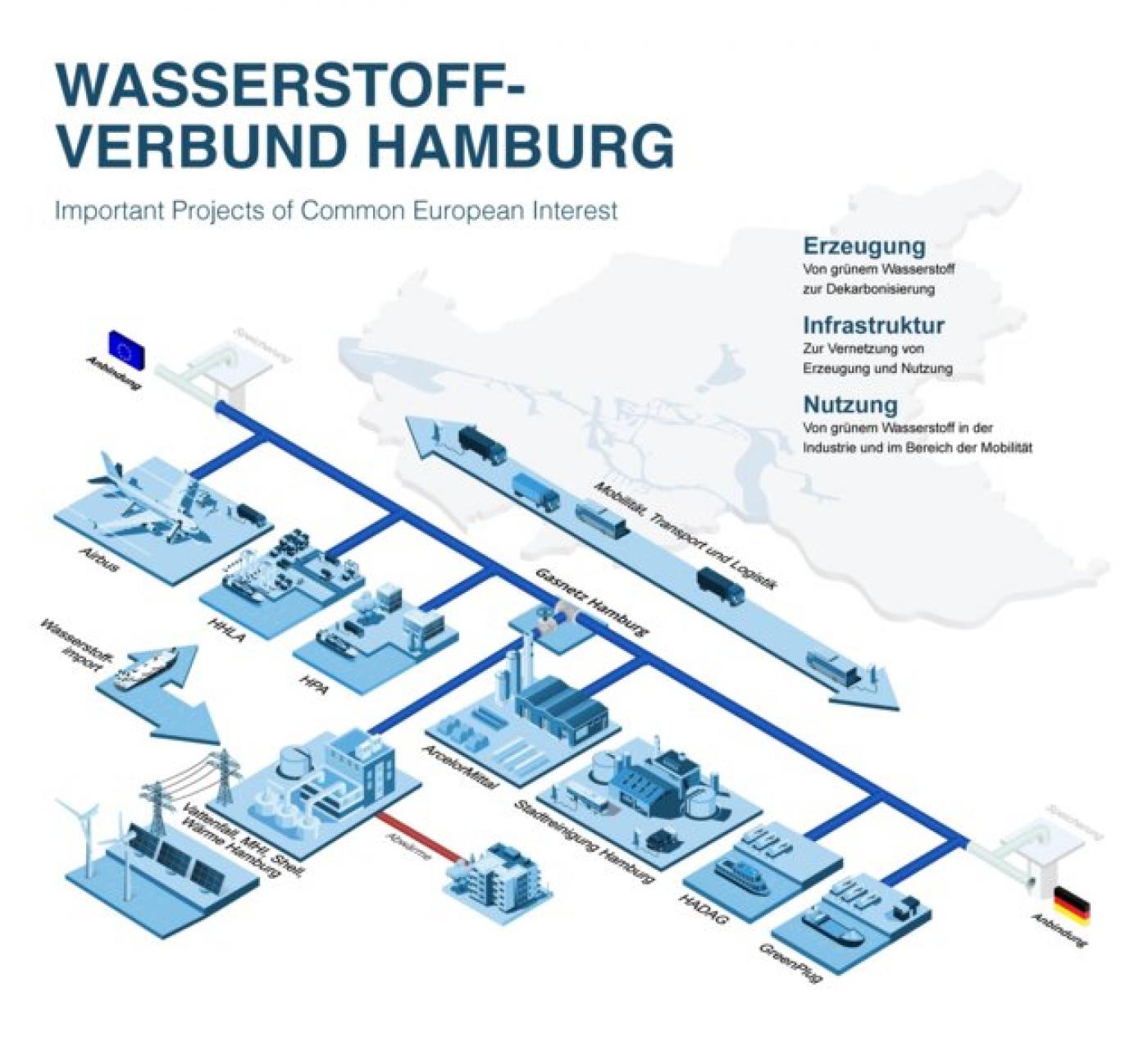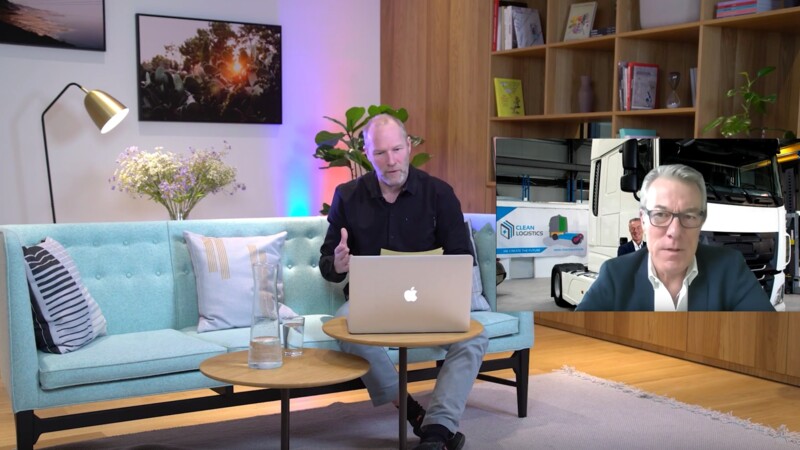Hopes are now high that joint projects for the production, distribution and use of hydrogen should reduce greenhouse gases considerably. The use of hydrogen by means of on-site electrolysis, seaborne imports and connections to the European hydrogen network could potentially save over one million tonnes of 16 million tonnes of CO2 emitted in Hamburg every year by 2030. The network is also aiming for positive transfer effects across Germany and Europe. The joint application submitted as part of the EU-wide funding programme "Important Projects of Common European Interest" (IPCEI) comprises nine complementary projects.
Airbus, ArcelorMittal, Gasnetz Hamburg, GreenPlug, Hamburger Hafen und Logistik AG, Hamburg Port Authority, Hadag Seetouristik und Fährdienst and Stadtreinigung announced Monday (April 26, 2021) the formation of the "Hydrogen Network Hamburg" with the Hamburg Green Hydrogen Hub consisting of Shell, Vattenfall, Mitsubishi Heavy Industries and Wärme Hamburg. The Elbe city and its partners are striving to decarbonise industry and establish an environment-friendly hydrogen sector to ensure a sustainable economy in future. The prerequisites are already in place.
Network to save over one million tonnes of CO2 annually
Nine hydrogen projects in port
They include the production of green hydrogen from wind and solar energy on the site of a former coal-fired power plant in Moorburg. The plans also foresee building a scalable electrolyser with an output of 100 megawatts and developing the site into a so-called "Green Energy Hub". The hydrogen produced there will replace fossil fuels in industry, transport and logistics. The project should prove the cornerstone of an entire hydrogen value chain in Hamburg, the partners said. The extensive network of potential industrial applications and service partners makes the Port of Hamburg a unique, location-specific platform.

From supply network to hydrogen-powered aircraft
The "Hamburg Hydrogen Industry Network" (HH-WIN) to be built by 2030 is considered the main link in the collaborative projects. Airbus also plans to focus on hydrogen as a "key technology with a view to aviation of the future" and is working on a hydrogen-powered ZEROe commercial aircraft. Other projects include the conversion of the ArcelorMittal plant in Hamburg to climate-neutral steel production, the use of zero-emission ships by Hadag Seetouristik und Fährdienst AG in Hamburg and the conversion of heavy-duty equipment for port logistics to fuel cell operations.
sb/pb
Sources and further information
More
Similar articles

Hamburg to become European green hydrogen city

ArcelorMittal to become carbon neutral by 2050

